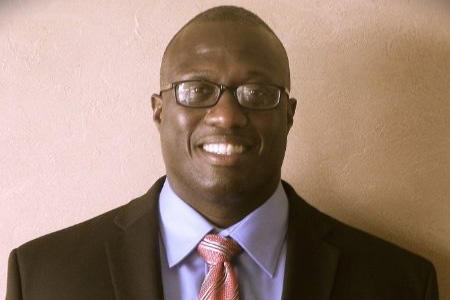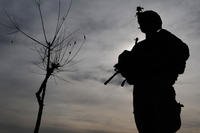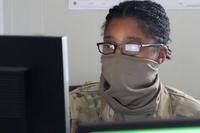TINKER AIR FORCE BASE, Okla. -- Although I am 39 and have been in the military for 15 and a half years, my educational journey could be considered by some as long, tedious and in some cases too late. I came into the Air Force in 1998 as an E-3 Surveillance RADAR technician after I failed in my first attempt at completing a degree. From 1992 to 1996, my education consisted of partying. I did not have any focus, foresight or determination to complete a goal.
Fast forward to October of 1997. I was bouncing between jobs, recently married with a child on the way, and the reality of life hit. Although I did have some college credits, I still had to put on every application the highest level of education completed was High School Diploma. At this time, I knew I had to make a change for my family and accomplish what I essentially set out to do in 1992. I enlisted in the Air Force under the Delayed Enlisted Program and went to basic in March 1998.
During my technical training, my interest in the Surveillance RADAR career field went beyond the technician scope. I wanted to know how everything worked. When I arrived to Tinker AFB, Okla., in January 1999 I did some research and enrolled at Rose State College in June 1999 as physics major because Rose State College did not have an engineering program at that time. In order to accomplish my educational goals, my supervisor afforded me the opportunity to attend school, but I had to work the graveyard shift (11:30 p.m. to 7:30 a.m.).
During my journey, I made many personal sacrifices that were not within the norm in comparison to my peers in the military. From June 1999 to May 2001, I attended Rose State College and obtained my associate degree in physics. My next step was enrolling at the University of Oklahoma in their engineering program. This was not an easy task due to my past academic performance. I had to meet with the Dean of Engineering and convince him I was worthy to be accepted into his school of engineering above students who carried a much higher GPA and had fewer personal and professional demands of their time.
In July 2001, I received my acceptance letter and was determined to prove to him that he did not make a mistake in allowing me into the program. As I advanced through the many engineering and physics courses at the University of Oklahoma, I continued to work the graveyard shift in order to pursue my academic goal of a bachelor's degree. Finally, in May 2006, I finished with a program GPA of 3.0 but was still haunted by my past overall GPA of 2.65. The Dean of Engineering called me into his office and congratulated me personally on my accomplishment because he knew the academic demands as well as the personal demands were far more than the normal student could handle.
Originally, I did not have aspirations to obtain a CCAF degree. However, I realized how important to my career development a CCAF degree was. Although I already had a bachelor's in Mechanical Engineering before receiving my CCAF degree, when I met the academic requirements and was awarded my CCAF degree, I was actually proud and felt motivated to continue my academic goals.
As I contemplated my next step, due to my enlistment being close to terminal, I decided to take the non-volunteer orders and teach technical training at Sheppard AFB, Texas, from 2006 to 2011. During that time frame, I enjoyed teaching and figured out that my future career path would be in the education field, but I wanted to teach at a university. So, I started my master's at Oklahoma State University in systems engineering and finished in May 2010. I knew I had to obtain a doctorate to teach, so after graduating from Oklahoma State University, I immediately enrolled in a doctoral program in business management. I was mentally exhausted from the rigor of engineering and wanted a degree that could be marketable as well set me up for a senior level leadership position after I retired, so I elected business management to hone my business acumen. Finally, after three years of research and business learning, I finished with a doctorate in business management.
Throughout my time working the graveyard shift, I was fortunate enough to work as a design engineer for OG&E and IEC designing relays and HVAC systems prior to moving to Texas. After coming back to Tinker AFB in 2011, I was able to obtain work as a college professor at Rose State College teaching electrical engineering and math courses. I plan on transitioning to a university within the year in order to teach business at the university level as I progress through the ranks and put in my time as university professor.
When I reflect upon my academic and professional journey, I come to the realization that the choices I made in life always carried at least a five year penalty or a window of opportunity in five years. I challenge anyone to take heed of the professional and academic decisions that you make now, because in the future you will have to answer for them in either a positive or negative light. In addition, as you progress in the field of academia, the amount of self-sacrifice increases and it is extremely important to have an excellent support system. All-in-all, I never let my children suffer and every sacrifice I made to achieve my goal was at my own personal expense and not at the expense of my family.
My name is Tech. Sgt. Dayvon McCarrell (2A973) and I hold a Doctorate in Business Administration with a research concentration in Business Management. I will forever be known as Dr. McCarrell!





